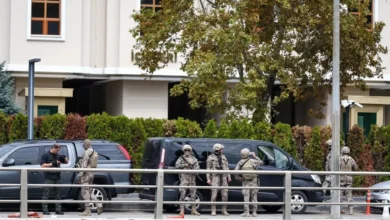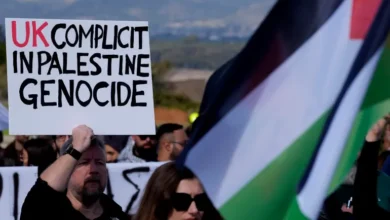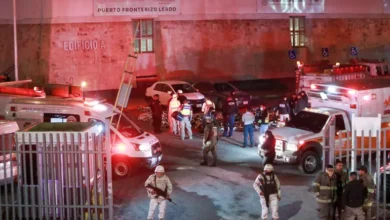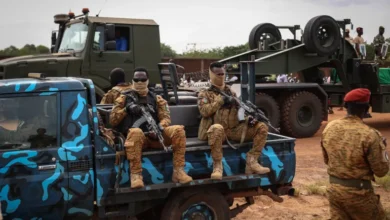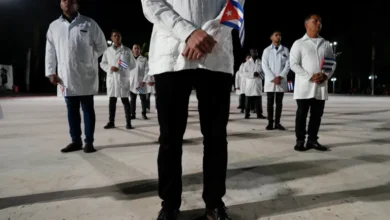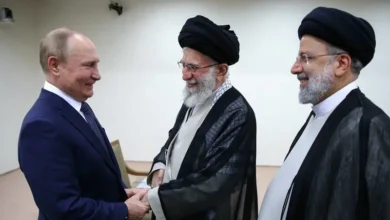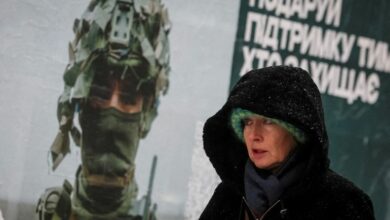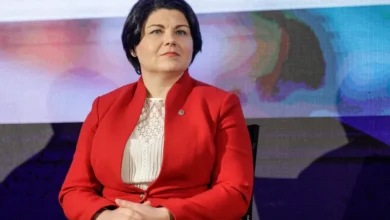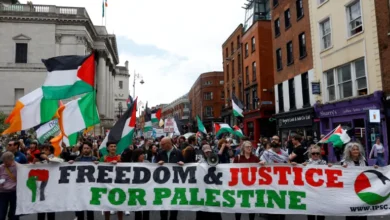Tanks ‘crushed bodies’ at al-Shifa Hospital
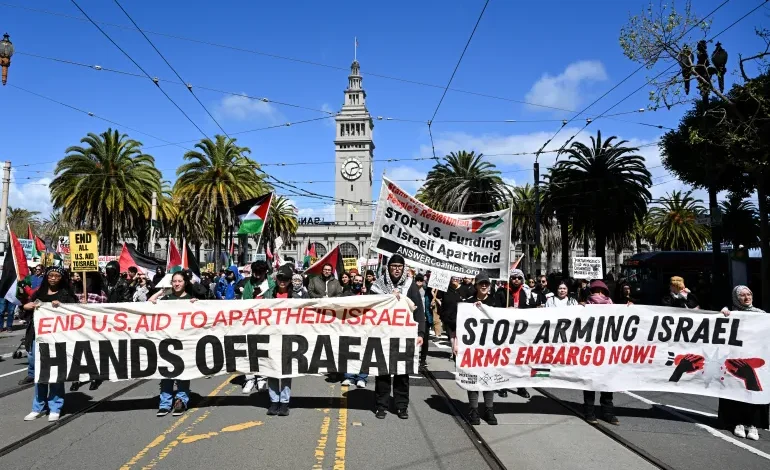
- Palestinians who fled the ongoing Israeli siege of al-Shifa Hospital say Israeli tanks and armoured bulldozers drove over at least four bodies and ambulances.
- Israeli forces have also surrounded al-Amal and Nasser hospitals in southern Gaza.
What is UNRWA and why is it important for the Palestinians?
UNRWA was created by the UN General Assembly on December 8, 1949, to provide basic support including food, healthcare and education to tens of thousands of Palestinian refugees.
More than 700,000 Palestinians were forcefully displaced leading up to Israel’s creation in 1948, which Palestinians remember as the Nakba, or “the catastrophe”.
The UNRWA operations are spread across the occupied West Bank – including East Jerusalem, the Gaza Strip, Syria, Lebanon and Jordan.
UNRWA supports some six million Palestinian refugees who live within and outside Palestine. It is like a quasi-state providing direct services, such as schools, primary health centres and other social services. It also provides loans to Palestinians.
More people will die if aid is blocked: UNRWA official
The UNRWA says Israel has barred it from making aid deliveries in northern Gaza, where the threat of famine is highest.
Sam Rose, the UNRWA’s planning director, says the implications in Gaza are dramatic after almost six months of relentless war.
“An independent authority warned last week of an imminent famine and people are already dying of starvation up in the north,” he said. “And this is essentially a dead sentence on many of those people.
“The situation is particularly harsh in northern Gaza, where we estimate that about 250,000 people have been trapped.”
He also stressed that blocking the UNRWA from delivering aid is a deliberate obstruction of life-saving assistance for a population already facing starvation.
“More people will die.”
No double standards at UN secretary-general’s office: Guterres
“There might be double standards in many places in the world, but there is no double standard in the secretary-general of the UN,” he said.
“For us, what matters are the principles, and the principles are the UN Charter, international law, territorial integrity of the countries, but also the international humanitarian law and the right of self-determination of people.”
The UN chief said he sees “a growing consensus emerging in the international community to tell Israel a ceasefire is needed”.
“But also, there is also a growing consensus to tell clearly to the Israelis that any ground invasion of Rafah could mean a catastrophic humanitarian disaster,” he added.
UNSC resolution does not link Gaza truce to release of captives: Guterres
Guterres says a UN Security Council resolution expected later today does not link a ceasefire in Gaza to the release of Israeli captives.
In the resolution, “a ceasefire is required together with, but not in a linkage with, the unconditional release of all hostages”, he said.
“And we have also claimed for the need for that release.”
It is ‘absolutely fundamental’ to keep people in Gaza alive: Guterres
In Amman, Guterres says it is “absolutely fundamental to preserve the life of the people in Gaza”.
“We have been insisting on the need for a ceasefire.
“In the beginning, our voice was relatively alone, but now we are seeing more and more of the international community recognising the same,” he said.
